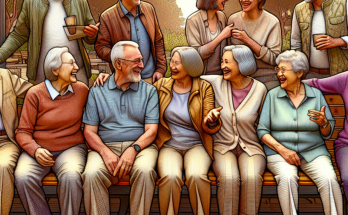Friendships are like plants—they don’t always need grand gestures or constant attention, but without a little watering here and there, they can wither. In a world where life’s demands often pull us in different directions, it’s easy to let friendships fall by the wayside. But the truth is, it’s often the little things that keep those relationships strong and thriving. Think about it. It’s not always the big vacations or elaborate gifts that make friendships special but the random text messages, shared laughs, and moments of vulnerability.
So, how do you keep the bonds of friendship alive, even when life gets busy? Let’s dive into some of the small yet meaningful ways to nurture friendships, backed by both personal experiences and a bit of science. Spoiler alert – It’s not as hard as you think.
The Power of Consistency
You don’t have to be in constant contact with your friends to keep the relationship alive. But consistency — in whatever form that takes — makes a huge difference. Whether it’s a weekly phone call, a monthly lunch, or even sending memes to each other on social media, consistent interactions provide a sense of stability. It’s the idea that even when life gets hectic, you’re still making time for each other.
Why Consistency Matters?
Consistency is important because it builds trust and reliability. According to a study published in Personal Relationships, people who maintain consistent contact with friends are more likely to report feeling emotionally supported and connected. The study found that even small, regular interactions can significantly strengthen the bond between friends. Think of it as maintaining a thread that keeps you connected, even when life is pulling you in different directions.
The Importance of Vulnerability
Let’s be real: friendships aren’t just about the happy times. They’re also about being there for each other during rough patches. One of the most underrated aspects of friendship is vulnerability. Opening up about your struggles, fears, and insecurities deepens your connection. It allows your friend to feel trusted and, in turn, encourages them to open up as well.
Why Vulnerability Works
According to psychologist Brené Brown, vulnerability is the glue that holds relationships together. In one of her studies, Brown highlights that vulnerability fosters deeper emotional connections because it creates a space for authenticity (Brown, B. (2012). Daring Greatly). When you allow yourself to be vulnerable with a friend, you’re essentially saying, “I trust you with this part of me.”
A Small Example
Think of the last time you called a friend just to vent. Maybe it was about work, family stress, or feeling overwhelmed. Odds are, that conversation brought you closer. By sharing your struggles, you’re inviting your friend to be a part of your life in a deeper way.
Celebrating the Small Wins
We often think about supporting our friends during tough times, but celebrating their accomplishments — even the small ones — is just as important. Whether it’s a promotion at work, finishing a tough workout routine, or just making it through a rough week, acknowledging these little wins can make your friend feel seen and appreciated.
Why It Matters?
Psychologically, celebrating small victories reinforces positive behavior and builds self-esteem. A study by Amabile and Kramer (2011) in the Harvard Business Review showed that even small achievements can significantly boost happiness and motivation. When friends take the time to acknowledge each other’s wins, it strengthens the emotional bond between them.
Being Present, Even When You’re Not Physically There
In today’s world, physical distance doesn’t have to mean emotional distance. Thanks to technology, staying connected is easier than ever, but it’s not just about sending a quick “Hey!” on social media. It’s about being genuinely present when you do interact with your friends, whether that’s through a video call, a voice note, or even a thoughtful text.
The Science of Presence
A study published in Computers in Human Behavior found that online communication can actually enhance feelings of closeness, especially when people use it to deepen their existing relationships. The key is to use these tools for meaningful conversations, not just surface-level interaction.
How to Be Present?
It’s easy to get distracted by notifications or multitask during calls, but being present means giving your friend your full attention. Next time you’re catching up with a friend over the phone or video call, put down the distractions. Make an effort to listen actively, ask questions, and engage fully. Those moments of undivided attention go a long way.
Acts of Kindness – Small, but Impactful
Sometimes, it’s the smallest acts of kindness that have the biggest impact. Whether it’s picking up the tab for coffee, dropping off a care package, or even just sending an encouraging message, these little gestures show your friends that they matter to you.
Why Kindness Matters?
Research backs this up. A study in the Journal of Social Psychology found that performing small acts of kindness increases feelings of happiness and well-being in both the giver and the recipient. These small gestures might seem insignificant, but they create a positive feedback loop that strengthens the friendship.
Giving Space When Needed
It’s also important to remember that sometimes, the best thing you can do for a friend is give them space. Life gets busy, and people go through phases where they need to focus on themselves. Respecting that without taking it personally is crucial for a lasting friendship.
Why Space Is Healthy
Friendships, like any other relationship, need breathing room. A 2015 article in Psychology Today notes that giving space in relationships allows individuals to recharge and come back stronger. It’s about finding a balance between being there for your friend and respecting their need for time alone.
When to Step Back
If a friend is going through a tough time and isn’t reaching out as much as usual, it doesn’t always mean they don’t want you around. Sometimes, they just need time to process things on their own. A simple “I’m here for you whenever you’re ready” can go a long way.
Conclusion
Friendships don’t thrive on grand gestures alone; it’s the little things that keep them alive. Whether it’s consistent communication, moments of vulnerability, celebrating each other’s wins, being present, or small acts of kindness, these small actions build a strong foundation.
So, the next time you wonder what you can do to keep a friendship going, remember: it’s not about doing something huge. It’s about making a series of small, thoughtful choices that show your friends you care. After all, it’s often the little things that matter most.
Frequently Asked Questions
Why is consistency important in friendships?
Consistency helps build trust and reliability, making friends feel emotionally supported and connected, even with small, regular interactions.
How does vulnerability strengthen friendships?
Vulnerability fosters deeper emotional bonds by allowing friends to share their authentic selves, creating trust and a sense of closeness.
What are some small ways to celebrate a friend’s achievements?
You can celebrate a friend’s achievements by sending a congratulatory text, a thoughtful card, or even a small gift to acknowledge their success.
Why is giving space important in friendships?
Giving space allows friends to recharge and focus on themselves when needed, which can ultimately strengthen the relationship in the long run.




